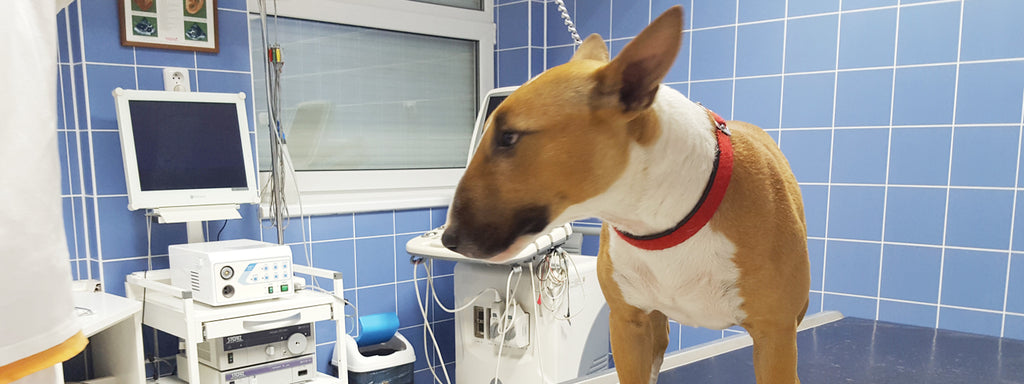How Does Life Change for a Dog with Kidney Disease
For this week’s installment on canine illness we will discuss kidney disease and how it affects a dog’s life.

Kidney disease has two forms: acute, and chronic. There are many causes for this malady, including age, infection, parasites, cancer, abnormal levels of protein accumulation in the kidney, inflammation, autoimmune disease, trauma, poisoning, and congenital disorders.
Symptoms
The most common signs of kidney disease include increased water consumption, decreased appetite, vomiting, weight loss, diarrhea, lethargy, and poor coat. In addition, increased urination volume, lack of urination, nighttime urination, and blood in the urine are all signs of kidney disorders.
Treatment
Treatment depends on the type of kidney disease that has been diagnosed, either acute or chronic.
Acute Kidney Disease
In cases of acute kidney disease, symptoms will have suddenly occurred and are typically caused by an infection, parasites, or poisoning. Acute kidney disease can be reversed if detected in time. Treatment includes fluid therapy to promote hydration, with the addition of electrolytes. Dogs will commonly suffer from loss of appetite, so a feeding tube might be necessary. Depending on severity, dialysis is an option, as well as kidney transplants. In addition, the underlying cause of the disease must also be treated.
Chronic Kidney Disease
A dog with chronic kidney disease will have irreversible lesions within the kidney, and total kidney function will not be able to be restored. However, with proper management kidney function can be stable for prolonged periods of time. Commonly, chronic kidney disease is simply due to advanced age.
For these pets, frequent fluid therapy is necessary because dogs with kidney disease are at significantly greater risk of dehydration. Regular injections of subcutaneous fluids are often necessary. Dogs with chronic kidney disease will also require a diet that is lower in protein. Other changes to the diet include smaller, more frequent meals to encourage appetite and prevent weight loss, as well as vitamin, mineral, and Omega-3 fatty acid supplementation.
Caution must be used when giving dogs with chronic kidney disease medications for other disorders, such as bladder infections or heart disease, since the kidneys will no longer be able to adequately eliminate medication from the body. Chronic kidney disease sufferers will also be at increased risk of anemia, high blood pressure, blindness, and nausea.
Ultimately, acute kidney disease can be reversed if caught in time, while dogs with chronic kidney disease will face challenges in their daily lives. With the proper maintenance, however, these pets can live for years after receiving diagnosis.
Never miss a post! If you enjoyed this article, you might also like How Does Life Change for a Dog Who Has Allergies or How Does Life Change for a Dog Who Has Diabetes. Be sure to subscribe to our newsletter to receive the rest of this series directly in your inbox!
Please note: all dogs should be treated as individuals. The Actijoy blog is for educational and entertainment purposes only. In case of emergency, always seek qualified healthcare from a local veterinarian or emergency facility. Actijoy blogs are not designed to treat, diagnose, or prescribe medication for your pet.



